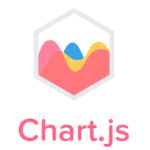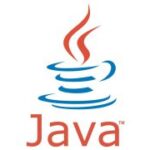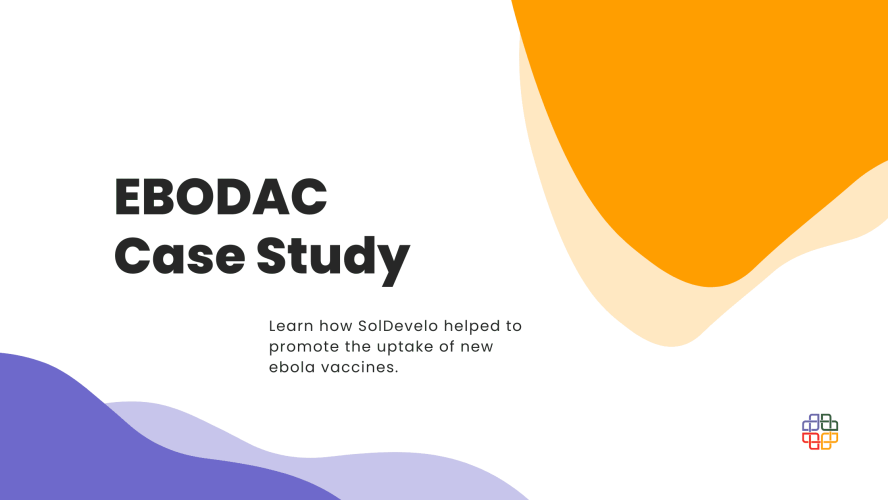“SolDevelo provides tireless, effective, full-service development and is one of the best groups I’ve worked with.”
Emily Tucker
Director, Product Management, Grameen Foundation
There are countless challenges that the world is faced with every single day. Some of them are old, some of them are new. Some of these challenges repeatedly come back to haunt us, until we come up with yet another solution. One of such recurring problems are dangerous virus diseases. The last two years reminded the whole world how big of a challenge they are. However, it is not a new problem, as humanity has had to deal with infectious diseases many times throughout history. One of such diseases is ebola that was the cause of the 2013–2016 epidemic in western Africa. Many specialists and organizations searched for methods to put an end to this tragedy. Thankfully, science and technology came to help overcome this challenge.
In this article we will introduce you to EBODAC – a project that supported acceptance and uptake of new ebola vaccines.
Grameen Foundation

Grameen Foundation, based in Washington D.C., was founded in 1997 with the aim to increase poor people’s access to microfinance in order to enable them to create a world without poverty. GF fields of operation include finance, health and agricultural projects in several countries around the world. They bring a mix of financial services – loans, savings, insurance – to the rural poor and connect farmers to markets, help them grow more high‐value crops, and enable them to demand better prices. The foundation works also with government agencies, the private sector, and civil society to develop mobile health solutions aimed at the improvement of health outcomes of the poor.
EBODAC
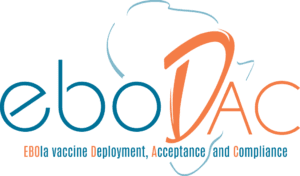
EBODAC was a project (Ebola vaccine Deployment, Acceptance, and Compliance) focused on developing strategies and tools to promote the acceptance and uptake of new Ebola vaccines, to help the right person receive the right vaccine at the right time.
Its aim was to support clinical trials of Ebola vaccines in Sierra Leone, while simultaneously preparing for the future deployment of a licensed vaccine through a series of linked projects focused on communications, community engagement, and enabling technologies.
The project’s main challenges:
- Developing and implementing a Community Engagement Strategy;
- Developing and implementing identification tools;
- Implementing mobile phone technology.
The resource limitations associated with work in poor, remote areas presented major challenges. In remote locations in Sub-Saharan Africa, lack of electricity and connectivity is a common obstacle. This has a great impact on the types of ICTs that can be used, as electrical power and data transfer are fundamental to their usability. Thus one of the project’s most important products is a platform, based on mobile technology, dedicated to Ebola vaccines.
Our input
Working with Grameen Foundation, SolDevelo was responsible for implementing a web application service which involved extensive usage of Interactive Voice Response (IVR) systems and notifications via SMS, in order to facilitate the widespread and timely reach of clinical trial participants.
The second part of the EBODAC project introduced vast reporting capabilities for tracking trial participants’ clinical visits, attendance and vaccination coverage. A number of metrics were used to assess the success of the program. Reports greatly affected and improved fact-based decision making about the strategies applied in the project. The EBODAC system leveraged the established e-health MOTECH platform, originally developed by Grameen Foundation and improved by SolDevelo. By using MOTECH capabilities, the EBODAC platform was able to interconnect with various related platforms, such as IVR, EDC (Electronic Data Capture) system through FTPS (File Transfer Protocol Secure) and biometric recognition system through REST API.
If you want to learn more about MOTECH, consider reading our article dedicated to this topic: MOTECH: How A Mobile Midwife Is Rescuing Lives.
The Result
The importance of vaccines is still a topic of many discussions. That is why it is even more crucial to spread awareness on the benefits of vaccination, while showing past examples of their effectiveness. Our mission, as a part of humanity, is to value every life and save as many people as it is possible.
Projects like EBODAC are a key component of making progress. Serving as a source of information on Ebola and vaccines, it helped to raise awareness in local communities. It also made sure people were notified about their second booster dose, and facilitated the tracking of vaccination coverage. Through training programmes EBODAC played an important part in developing local communication strategy and its tools.
Members of the EBODAC consortium:
- London School of Hygiene and Tropical Medicine
- Janssen Pharmaceuticals
- World Vision Ireland
- Grameen Foundation
Funders:

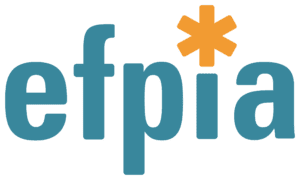
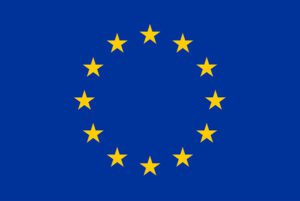
This project has received funding from the Innovative Medicines Initiative 2 Joint Undertaking under grant agreement EBOVAC1 (grant nr. 115854), EBOVAC2 (grant nr. 115861), EBOMAN (grant nr. 115850) and EBODAC (grant nr. 115847). This Joint Undertaking received support from the European Union’s Horizon 2020 research and innovation programme and EFPIA.
Technologies used

